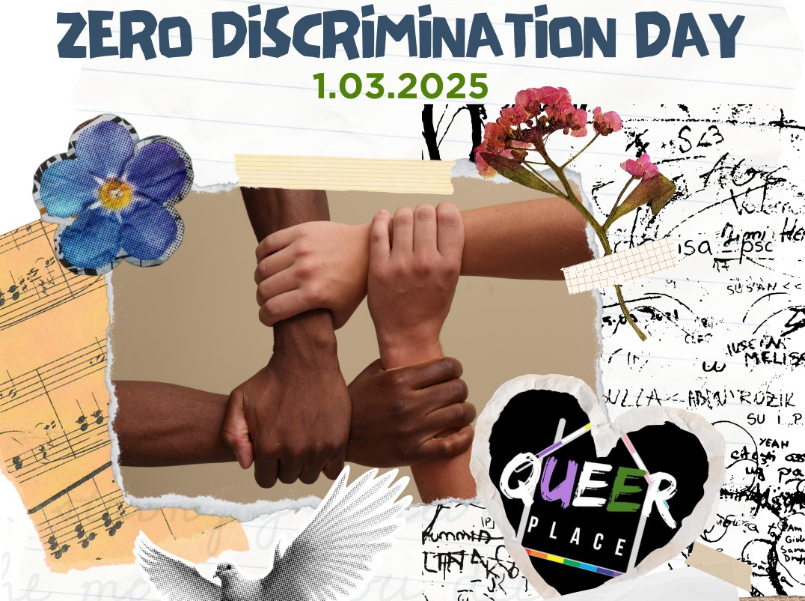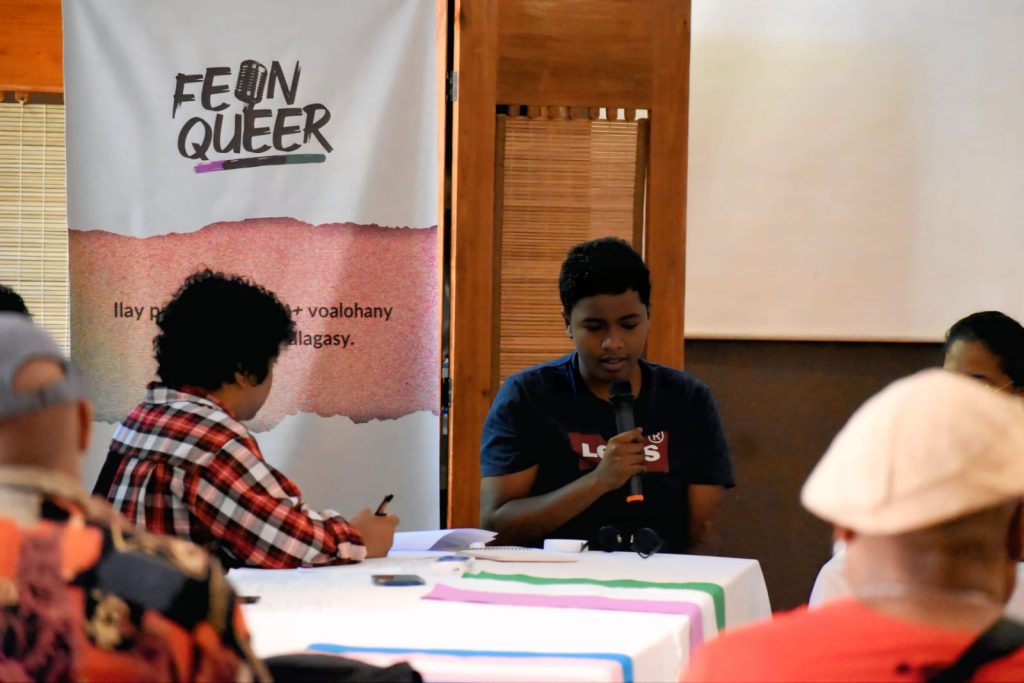Madagascar: Activism remains difficult due to sex and gender taboos
Moïse Manoël-Florisse, is an African-Caribbean online journalist keeping an eye…
Homosexuality is not criminalized in Madagascar, but it’s far from socially accepted
In African island country Madagascar, it’s still frowned upon to be a member of a sexual or gender minority. Yet for the past 4 years, the activists at Queer Place Madagascar have been using word-of-mouth to provide meeting places, while taking care not to inflame Malagasy society. Erasing 76 Crimes spoke to some of the activists at QP about the delicate balancing act they must perform to provide a safe space and advocacy for queer Malagasies.

The Malagasy island context
Diamond (pseudonym) is one of the organizers of Queer Place Madagascar. They (Diamond pronoun) say that pervasive conservative religious values inhibit queer activism.
“Madagascar is a very Catholic Christian land of 30 million inhabitants, and these values permeate our elected representatives (Madagascar is 60% Christian, according to the Association of Religious Data Archives). So, while there are a few LGBT+ associations on the ground – there are three in all – there’s still a lot of advocacy work to be done, as evidenced by the law on gender-based violence, which still doesn’t include violence against LGBT+ people,” they say.
Law n°2019-008 of January 16, 2020, on the fight against gender-based violence (GBV), defines such violence as “any act of violence directed against a person because of his or her sex.” However, this definition focuses on biological sex and does not explicitly mention sexual orientation or gender identity.
Furthermore, article 331 of the Malagasy Penal Code criminalizes “immodest or unnatural” acts with an individual of the same sex under the age of 21, whereas the age of majority for heterosexual relations is 14. This differential age of consent is discriminatory towards LGBT+ people.
Prioritizing the expression of LGBT+ Malagasy speech with ‘Feon Queer’

Faced with a political culture sensitive to the arguments of religious leaders, Queer Place Madagascar has decided to prioritize the blossoming of speech among LGBT+ people, in order to start breaking down the taboo of their sexual orientation among the first people concerned.
Another QP organizer, Mx (pseudonym) says the organization has used digital media to spark dialogue across the country.
“Madagascar is a very large country, and in order to reach as many people as possible, we have launched for the third year running a program of eight podcasts in the Malagasy language, based on our YouTube channel,” she says.
“Our podcast is called Feon Queer (Queer Voices in English), and it allows several speakers to take the floor to lift the stigma around neurodivergent communities who may suffer from anxiety, gender dysphoria or sometimes attention disorders, often caused by a climate of stress engendered by LGBTphobia.
“In a country where society does not allow us to work with private radio stations, we had to have our own media, and today we must say that we manage to reach mainly young people under the age of 30,” Mx says. The island’s average age is 19 in 2025, according to the United Nations Population Fund.
“What’s more, this activity extends and complements the monthly awareness-raising workshops we run face-to-face in the capital, in premises we rent in private areas, away from prying eyes.
“On the other hand, due to a lack of resources and to avoid any backlash, we don’t feel able to take on the management of a refuge, as an identified place could constitute a target, and we refuse to endorse this in the country’s current social and political context,” she says.
Consolidating festive actions and regional LGBT+ political integration
With the upcoming International Day Against LGBTphobia on May 17, and Pride Month in June, Diamond and Mx are planning to continue with the events of previous years, such as the “Pride Indoors,” although they are aware of the constraints.
“For May 17, we’ll probably organize a workshop on homophobia, but for the time being, nothing is set in stone, as we still need to organize private fundraising. We’ll also be organizing festivities for Pride Month, but the popularity of the event means we’ll have to consider a bigger, more spacious venue than last year. Safety and discretion must remain the watchwords, even when it comes to having fun,” Diamond assures us.
“This year, we want to keep Pride Indoors, but at the same time, we want to bring a touch of novelty and innovation with a venue that can host cultural performances by slammers, poets, musicians, visual artists and activists from our communities,” they say.
Finally, on a more global scale, Queer Place Madagascar is committed to forging closer ties with both southern Africa and the neighboring Mascarene Islands.
“The Pilon association on Reunion Island, Out Moris in Mauritius and Men Engage Africa in South Africa are our main regional partners, placing us at the interface of continental Africa and the Indian Ocean,” says Mx.
With the exception of the Comoros archipelago, where homosexuality remains illegal, these networks augur well for future dynamics in an insular African sub-region largely committed to the decriminalization of homosexuality.





